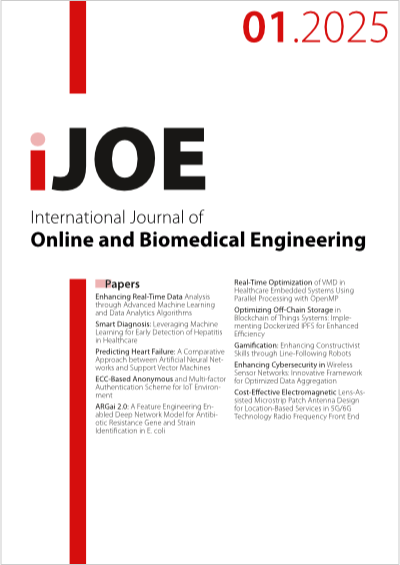Smart Diagnosis: Leveraging Machine Learning for Early Detection of Hepatitis in Healthcare
DOI:
https://doi.org/10.3991/ijoe.v21i01.51383Keywords:
, machine learning, Hepatitis C DiseaseAbstract
There is high variance related to the detection and prevention of human diseases. This is a concerning factor considering hepatitis. It is a disease that affects the functioning of the liver, which causes the deaths of millions of people in a year, around the world. Conventional methods are slow and inaccurate to a large extent. Machine learning (ML) is a process where a machine is trained using large amounts of data for it to predict about the disease. This paper aims at developing a hybrid machine-learning model using a stacking-based classifier. The hepatitis dataset is available in the UCI ML repository used in this work. A few data pre-processing steps were implemented on the dataset to create an optimum database. This includes imputing missing values, balancing the dataset using the synthetic minority over-sampling technique (SMOTE) and scaling the dataset using robust scaler. For selecting the optimum features, Chi-Square and Pearson Correlation tests were performed. The proposed model has reported a classification accuracy of 98.7%.
Downloads
Published
How to Cite
Issue
Section
License
Copyright (c) 2024 Hemang Mehta, Vyom Shah, Sashikala Mishra, Nirmal Keshari Swain, Chinmay Kulkarni, Debabrata Swain

This work is licensed under a Creative Commons Attribution 4.0 International License.



